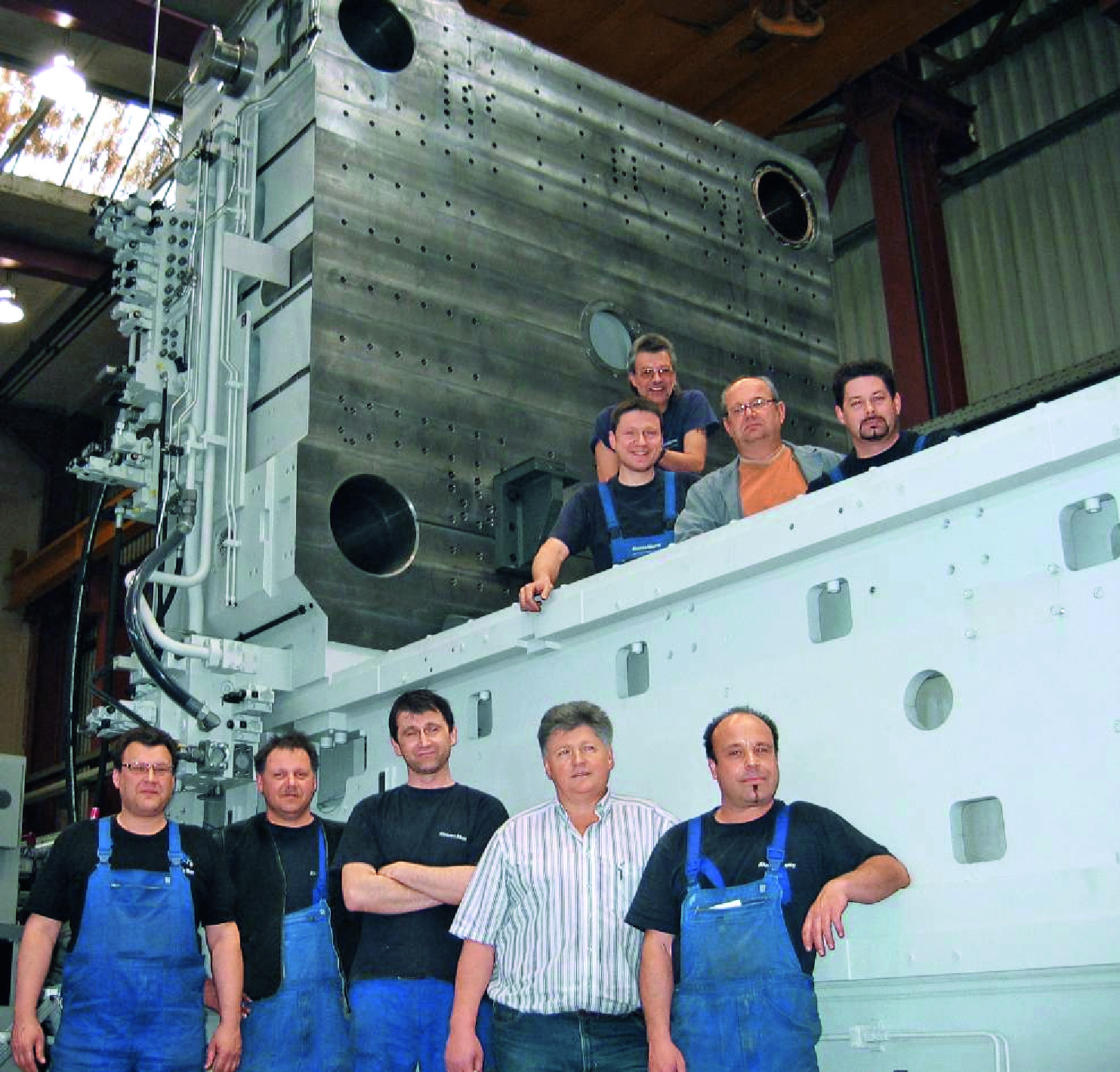|
– Plastics know-how for supporting structures and exterior parts of the BMW i3
|
| (Munich, February 21, 2014) Priority for sustainable mobility: Thanks to the plastics know-how of KraussMaffei, electric cars such as the BMW i3 can make full use of their advantages. Exterior parts made of thermoplastics and structural components made of fiber-reinforced plastic are produced in injection molding and reaction process machines of the world’s leading machine manufacturer.
|
|
First supplier for a revolutionary production concept Electromobility holds out the promise of greater environmental compatibility due to lower fuel consumption and fewer exhaust emissions. However, these advantages can only be attained with the alternative drive unit of the much heavier electric battery that has to be compensated through the lightweight construction of the vehicle. As the first supplier of production equipment and with the aid of refined processes, KraussMaffei is helping to process carbon fiber-reinforced plastics (CRP) for the first time in series production: With premium quality injection molding machines in swivel plate technology and the mature high-pressure resin transfer molding process (HP-RTM). “That is our contribution towards a new generation of vehicles in order to facilitate the breakthrough for lightweight construction and electromobility,” says Nicolas Beyl, President of the Reaction Process Machinery Segment of KraussMaffei. For very high dimensional accuracy of the parts KraussMaffei has supplied BMW with premium quality injection molding and reaction process machines, for example two double swivel plate machines which are fully automated with two industrial robots. Weighing 400 tonnes, each MX 4000-17200/12000/750 WL is 24 meters long, 9 meters wide and 7 meters high. The thermoplastic outer shells of the BMW i3 are produced on these machines, which have a clamping force of 4,000 tonnes, at the BMW plant in Leipzig. Using the “joining in injection molding” process, the outer door shell and its substructure are injected in a single pass, are joined as the two swivel plates turn and are bonded with a third plastic component. “The combined work processes ensure very high dimensional accuracy of the parts,” says Frank Peters, Vice President Sales of the KraussMaffei brand. The “face” of the BMW i3 In addition to the sidewall panels and the rear bumper, the hood of the BMW i3 comes from a KraussMaffei injection molding machine. “They are produced on the most complex machines we have ever developed”, emphasizes Peters. ”We showed a great deal of commitment in accepting the challenge to contribute the most innovative machine technology which places maximum demands on availability. I am proud of what our team has achieved.” High filling pressures for optimum fiber wetting In addition to injection molding technologies and automation solutions, the Reaction Process Machinery Segment is involved in the BMW i3. 20 machines for high-pressure resin transfer molding (HP-RTM) supply reactive resin components for the supporting structures, for example the side frame, at the BMW plants in Leipzig and Landshut. HP-RTM allows fast reacting resin systems to be processed in order to attain short cycle times. High-pressure injection produces a high degree of fiber wetting. A 10-man team from the KraussMaffei Reaction Process Machinery Segment set out to improve metering technology and provide mixing heads with the possibility of adding an internal separating agent. The experts worked under high pressure to meet the specific requirements relating to chemistry and the process. “We are now the only manufacturer of metering machines on the market who has this experience under series conditions”, says Beyl.
Stiff lightness In order to produce fiber-reinforced parts with an epoxy matrix in larger series, KraussMaffei enhanced high-pressure resin transfer molding (HP-RTM) for series use. In this process a self-cleaning, high-pressure mixing head injects the resin into the closed cavity and saturates the fibers inside under high pressure and with precise stipulations of the duration and temperature so that the resin and hardener are fully networked. After it has hardened, the component becomes stiff and very light. Compared with the previous autoclave process or vacuum infusion, the advantage of automated production is that the cycle times are reduced from up to 24 hours to minutes depending on the complexity and size of the component. Another advantage: This type of HP-RTM process is also suitable for the use of polyurethane instead of epoxy resin as a matrix material. In addition to easier handling of the generally lower raw material price, another advantage of polyurethane is the reduced processing temperature.
Competitive edge for the megatrend of electromobility Agreeing on the basics was one of the many continually recurring individual questions, specifications and deadlines. “This complexity could only be mastered by our experienced team and through close cooperation with the technology experts from BMW and other partners in the areas of compression molding, moldmaking, handling and automation,” emphasizes Erich Fries, Head of the Composites Business Unit at KraussMaffei. Many years of experience in this field were also required: For example, the Reaction Process Machinery Segment of KraussMaffei has been refining its range of fiber composite technologies since the 1990s, initially for utility vehicles in particular and lately to an increasing extent for car manufacturers. “With the BMW i3, we implemented our improved HP-RTM technology for the first time under series conditions within the context of a completely new production concept. This provides us with a broader view of the process chain in efficient fiber composite production and is our competitive edge for other projects”, summarizes Josef Renkl, Head of Research, Development and Application Technology. Beyl adds: “This lightweight car is therefore the vehicle for the megatrend of electromobility.” So that a large number of drivers can glide smoothly, quietly and with less emissions along roads in future.
KraussMaffei will showcase its lightweight construction expertise on an information stand (Pavilion: 7-2, booth number S29) at “JEC Europe” in Paris (March 11 to 13, 2014).
|
|
|
|
About the KraussMaffei Group |


